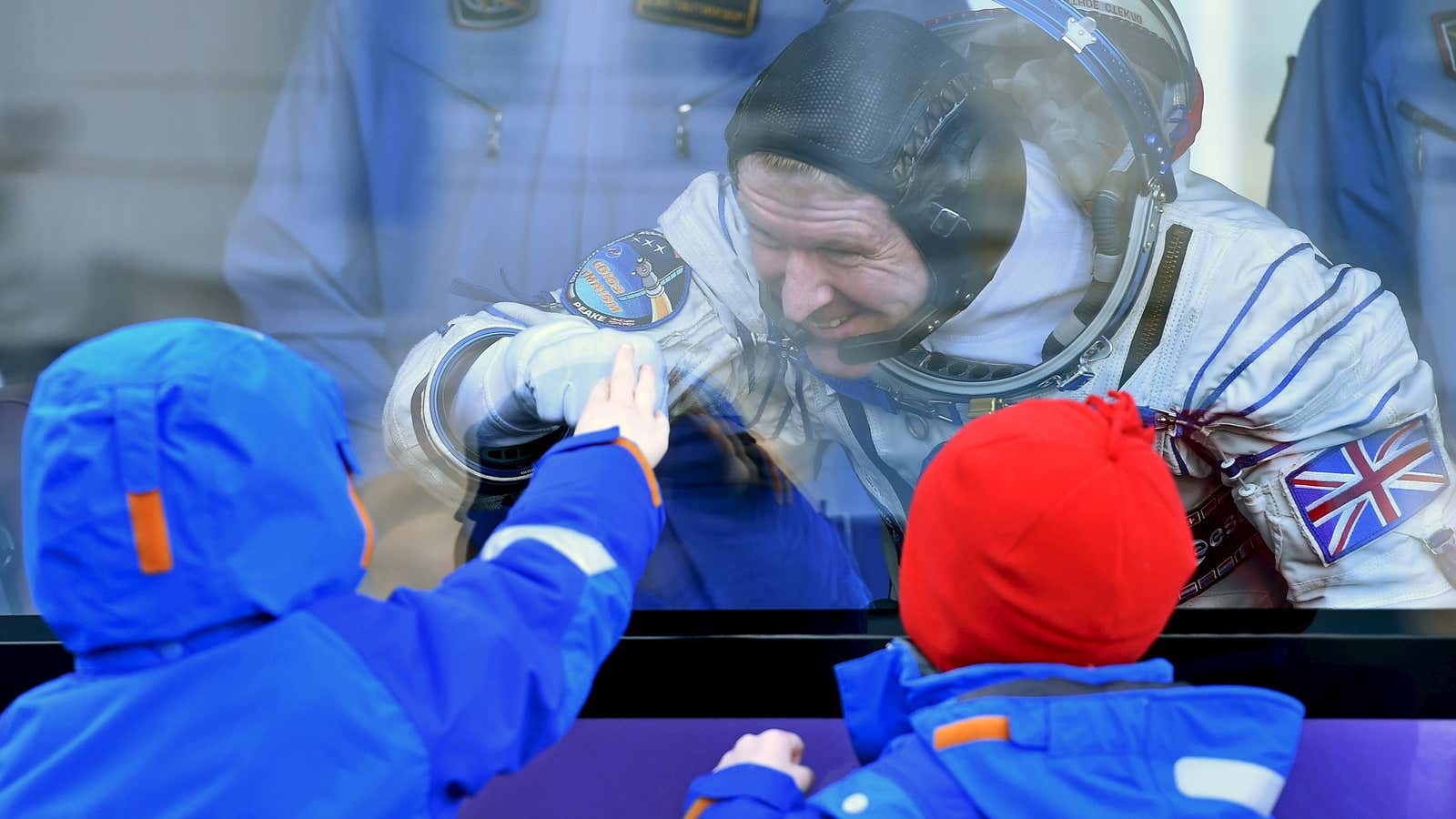Most parents know that talking to their kids about all manner of things—from homework to friendship to sex—is good practice.
But new data from PISA, the OECD’s high-profile critical thinking test for 15-year-olds around the world, shines a light on just how important all that chatting can be.
The report looks at how children feel about school, stress, and motivation, and tries to unpack the role of teachers and parents in creating kids’ sense of happiness, and life satisfaction.
The report finds that, across 72 countries, students whose parents reported “spending time just talking to my child”, “eating the main meal with my child around a table”, or “discussing how well my child is doing at school” every week were between 22% and 62% more likely to report higher levels of life satisfaction, reporting a 9 or 10 out of a scale of one to 10, compared to those students whose families did those things less frequently.
The point may be obvious, but the impact is profound.
“An activity as simple as eating a meal together at least once a week is associated with an increase of at least 12 score points in science, on average, after accounting for students’ socio-economic status,” the OECD said.
On average:
- 82% of parents report that they eat the main meal with their child around a table
- 70% reported that they spend time “just talking” to their child
- 52% say they discuss how well their child is doing at school every day or almost every day
Some countries are better at family dinners than others. In Belgium (Flemish community), France, Italy, Portugal, and Spain, more than 90% of parents eat a meal with their child daily or nearly every day.
“Just sit with them and talk to them—it’s just amazing the impact it can have on the life satisfaction of children,” said Gabriela Ramos, chief of staff at the OECD.
Of course, a lot of parents don’t have the time to be as engaged as they might like. Parents reported, not surprisingly, that work interfered most with their participating in school activities. In response, the OECD suggested that countries do more to promote policies that boost work-life balance (amen to that).
Schools can promote students’ wellbeing by encouraging “all parents to be more involved with their child’s school life,” the report says. With closer parent-teacher relationships, “schools can rely on parents as valuable partners.” That kind of effort is a lot cheaper than hiring an army of tutors when problems arise.
Still, engagement has limits. The report found getting too far into kids’ academic business can yield negative results:
Students whose parents reported that they “help my child with his/her science homework” or “obtain science-related materials (e.g. applications, software, study guides, etc.) for my child” at least once a week, score at least 23 points lower in science, on average, than students whose parents engage in these activities less frequently.
It’s possible, the report notes, that parents who are more directly involved in their child’s school work may do so because the child is struggling. The report doesn’t note, however, that overly-involved parents might also be perpetuating the problem by stifling the child’s self-motivation.
